Driveway Cost
Last updated 23rd April, 2025
If you have problems parking outside your home and you have a front garden, the solution might be to install a driveway. It will give you a parking space of your own, add value to your home and increase kerb appeal, making it more attractive to buyers if you decide to sell your home in the future.
But how much does a driveway cost? On average, you can expect to pay between £500 and £8,000, depending on the materials you use, the size of the driveway and the complexity of the job.
In this article, we’ll look at the cost of materials, driveway installation costs, extra work that might add to your budget and whether you’ll need planning permission or a building control inspection.
Let’s make a start!
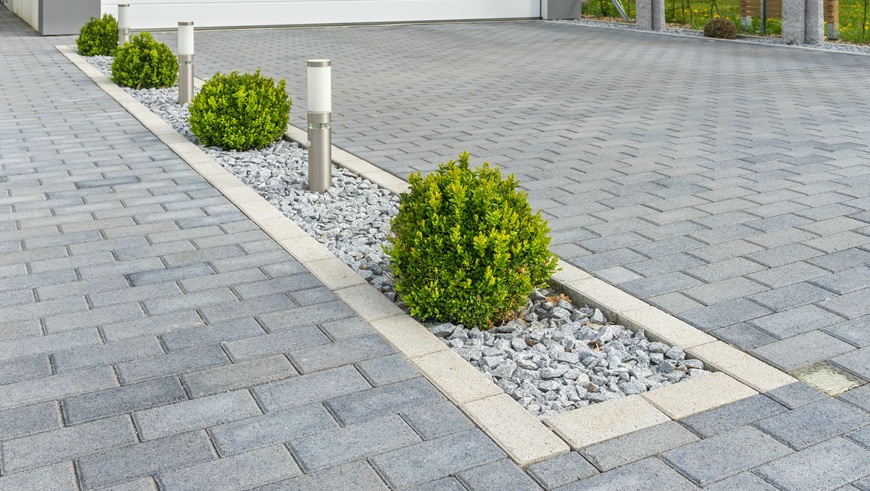
Table of Contents
How Much Does a Driveway Cost?
When you’re looking at costs, you have to take the following into consideration:
The size of the driveway – It will cost more to install space for 3 cars or more than it will for a single-car space.
The type of material you use to create a driveway – The materials you can use are:
- Concrete
- Gravel
- Block Paving
- Tarmac
- Resin-Bound
The cheapest material you can use for your driveway is gravel, which costs on average between £50 and £75 per m2. The most expensive material is resin, which costs between £60 and £90 per m2.
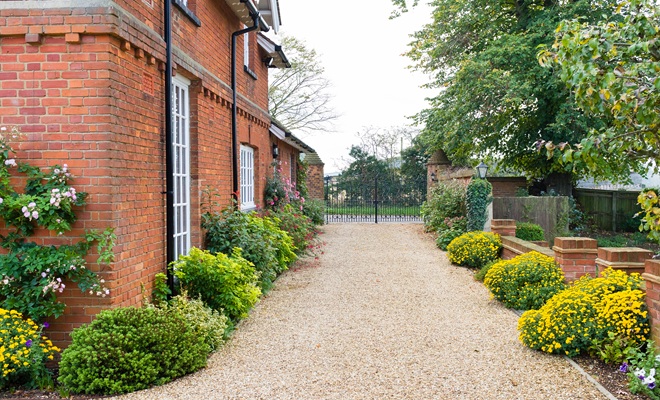
Labour costs - A driveway installation is normally carried out by two or three professionals, and the cost is usually charged at a day rate because even a small driveway will take at least a day to install. Average labour costs are between £220 and £450 a day for a straightforward job with no additional work.
If you need to remove an old driveway or change the position of a drain, then your costs will increase. For example, if you need to relocate a small drain, then the cost is likely to be around £1,000. Removing an old driveway will cost around £50 per m2. That means removing an old driveway that measures 15m2 will cost £750.
Location – Costs differ depending on where you live in the UK. You’ll pay more if you live in London or the southeast of England. In Scotland, Edinburgh is more expensive than other Scottish cities, and in Wales, you’ll probably pay more if you live on Anglesey or the Monmouth area.
New Driveway Prices
| Type | Size | per m2 | Material | 2 Days Labour | Total Cost |
|---|---|---|---|---|---|
| Plain Concrete | 20m2 | £40-£50 | £800-£1,000 | £440-£900 | £1,240-£1,900 |
| Patterned Concrete | 20m2 | £60-£90 | £1,200–£800 | £440-£900 | £1,640-£2,700 |
| Block Paving | 20m2 | £100-£150 | £2,000-£3,000 | £300-£400 | £2,300-£3,400 |
| Gravel | 20m2 | £42-£50 | £840-£1,300 | £300-£400 | £1,140-£1,700 |
| Black Tarmac | 20m2 | £40-£50 | £800-£1,000 | £500-£800 | £1,300-£1,800 |
| Red Tarmac | 20m2 | £60-£70 | £1,200-£1,400 | £500-£800 | £1,700-£2,400 |
| Resin | 20m2 | £40-£75 | £800-£1,500 | £300-£750 | £1,100-£2,250 |
| Type | Size | Per m2 | Material Costs | 4 Days Labour | Total Cost |
|---|---|---|---|---|---|
| Plain Concrete | 40m2 | £40-£50 | £1,600-£2,000 | £1,000-£1,800 | £2,600-£3,800 |
| Patterned Concrete | 40m2 | £60-£90 | £2,400-£3,600 | £1,000-£1,800 | £3,400-£5,400 |
| Block Paving | 40m2 | £100-£150 | £4,000-£6,000 | £800-£1,000 | £4,800-£7,000 |
| Gravel | 40m2 | £42-£50 | £1,680-£2,000 | £600-£1,000 | £2,280-£3,000 |
| Black Tarmac | 40m2 | £40-£50 | £1,600-£2,000 | £1,000-£1,600 | £2,600-£3,600 |
| Red Tarmac | 40m2 | £60-£70 | £2,400-£2,800 | £1,000-£1,600 | £3,400-£4,400 |
| Resin | 40m2 | £40-£75 | £1,600–£3,000 | £800-£1,000 | £2,400-£4,000 |
| Type | Size | Per m2 | Material | 4 Days Labour | Total Cost |
|---|---|---|---|---|---|
| Plain Concrete | 60m2 | £40-£50 | £2,400-£3,000 | £1,100-£2,250 | £3,500-£5,250 |
| Patterned Concrete | 60m2 | £60-£90 | £3,600-£5,400 | £1,100-£2,250 | £4,700-£7,650 |
| Block Paving | 60m2 | £100-£150 | £6,000-£9,000 | £1,000-£1,250 | £7,000-£10,250 |
| Gravel | 60m2 | £42-£50 | £2,520-£3,100 | £750-£1,000 | £3,270-£4,100 |
| Black Tarmac | 60m2 | £40-£50 | £2,400-£3,000 | £1,250-£2,000 | £3,650-£5,000 |
| Red Tarmac | 60m2 | £60-£70 | £3,600-£4,200 | £1,250-£2,000 | £4,850-£6,200 |
| Resin | 60m2 | £40-£75 | £2,400–£4,500 | £750-£1,250 | £3,150-£5,750 |
Costs will also be influenced by whether or not you need an old driveway removed or excavation and preparation work before a new driveway is laid. Other factors to consider are if you want edging or if you have an unusual design or non-standard colour.
Additional Costs
Laying a driveway will also likely have additional costs, which you must add to your budget. Possible extras you might need include:
Planning Permission
Installing a driveway does not generally require planning permission. But if you want to drop a kerb to create access to your new driveway, then you will need council approval because you are extending your driveway onto a public road.
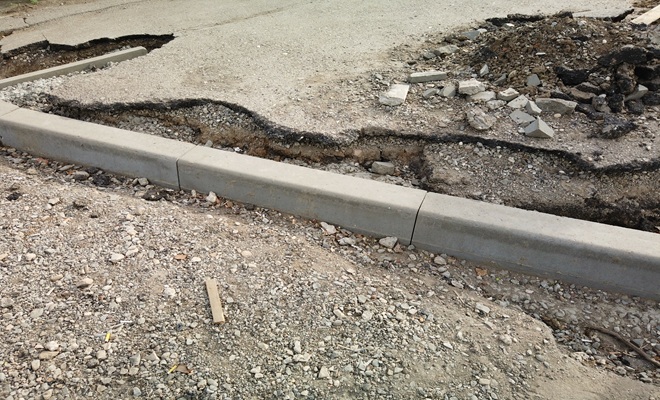
The cost of planning permission depends on the local authority, but you are likely to pay between £50 and £350, depending on where you live. The cost of a dropped kerb will depend on the number of kerbs and their size. In general, you can expect to pay between £330 and £530 for 2 kerbs.
Groundworks and Excavation
You may need to remove an old driveway or level off an uneven surface, which will be an additional cost.
Levelling or any other type of groundwork will cost, on average, between £16 and £22 per square metre. Removing an old driveway is around £50 per square metre. Removing an average driveway can cost anywhere between £1,500 and £2,500.
If you have grass, soil or old driveway material to dispose of, you might also need to hire a skip, which will be around £200. But before you go ahead and hire a skip, ask your driveway installer if this is included in the quote or if they can arrange it.
Adding Edges or Borders
You may want your driveway finished off with a decorative edge or border. This work will add to the total cost of the driveway because you will need to buy the edging or the material for the border and then add the cost of labour.
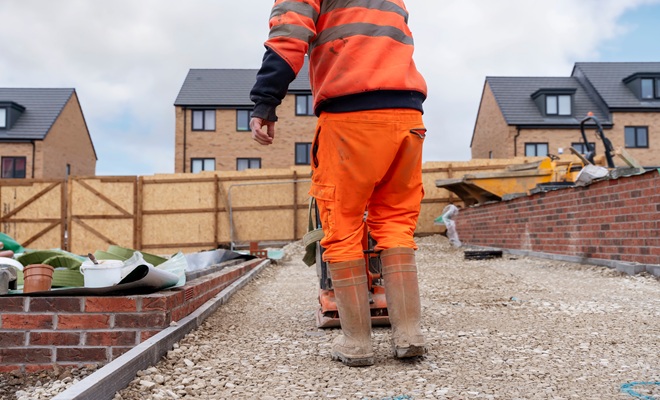
Concrete edging will cost between £20 and £60 for materials and between £150 and £200 for labour.
Relocating a Drain
The cost of relocating a drain will depend on a number of factors, including the size of the drain and the distance of the relocation. Prices vary, but on average, you should expect to pay between £1,500 and £7,500.
Removing a Tree
If a tree on your property isn’t subject to a council Tree Preservation Order, or you live in a conservation area, then you should be able to remove it without council permission. A small tree of less than 25 feet will take about half a day to remove. A large tree over 75 feet tall might take 2 to 5 days to remove.

The cost to remove a small tree is, on average, between £150 and £350. A large tree might cost between £1,000 and £2,500. A tree that’s between 25ft and 50ft will cost between £200 and £700. These costs include the removal of the timber but don’t include pulling up the stump. Stump removal sometimes requires specialist equipment and can cost anything between £100 and £500.
Lighting and Security
You can buy security lights for the exterior of your home from between £4 to £1,000, depending on whether you install floodlights, landscape lights or spotlights. In addition to these costs, you will also need to add the price of installation, which is, on average, between £80 and £1,100.
Driveway Maintenance
If you have a driveway installed, then you will need to maintain it. The cost of having a driveway professionally cleaned and sealed is, on average, between £200 and £400, depending on the type of driveway you have.
Adding new gravel or re-grading will cost between £200 and £2,700, depending on the size of your driveway. If you want weeds removed, then a gardener or handy person can do this for between £75 and £120.
Fencing and Gates
The amount you pay for a new fence will depend on the amount of fencing you need and the type of material. The most common materials are:
- Wood: £1,500 - £2,000
- Plastic: £1,500 - £1,800
- Metal: £1,600 - £2,400
- Composite: £1,200 - £1,700
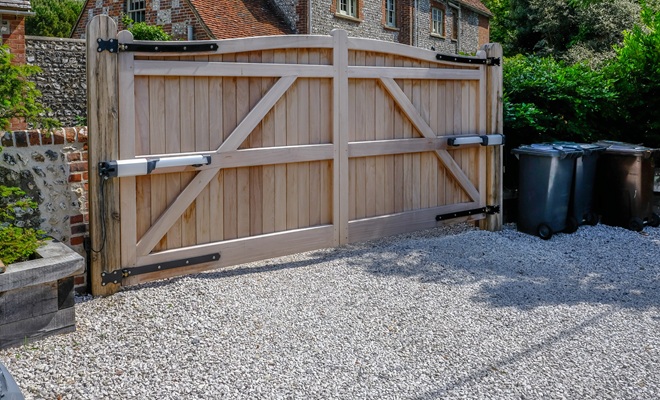
The prices are the average costs to install 8 panels measuring 1.8 meters in length and height, which will provide a fence 15 metres long. If you want a wooden fence, then you will pay between £15 and £80 per fence panel without installation.
An electric sliding gate will mean you don’t have to get out of your car to park in your driveway. The cost depends on the materials you use. In general, sliding gates are made from wood, steel, or aluminium and will cost, on average, between £2,750 and £4,000, plus installation costs of around £2,000.
Cost Breakdown Calculator
Materials
Labour
Rubbish Disposal
Labour Costs and Timeframes
In the chart, we show the average daily rate you may be charged if you live outside London or the southeast of England. These charges also depend on the complexity of the job and whether or not any extra work is needed.
The types of problems that will slow down a driveway installation are bad weather, poor site access and making changes while the work is going on.
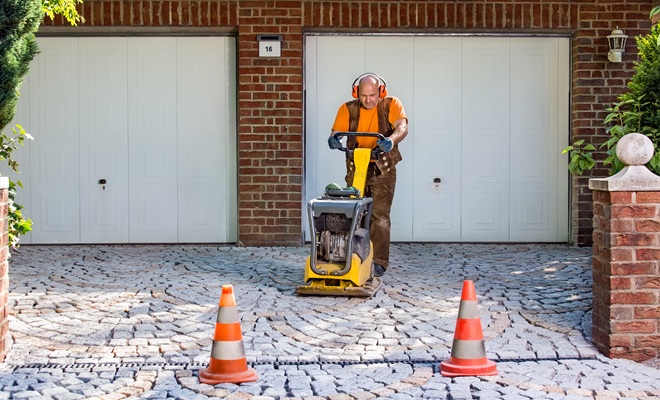
If you want the job done quickly, then a gravel driveway is the fastest to install; they are usually finished in 1 or 2 days. A tarmac or a resin-bound driveway will take between 2 and 4 days.
Block paving generally takes between 4 and 7 days because it is labour-intensive. A concrete drive needs time to cure, and therefore, you can expect the work to take between 3 to 5 days.
The average labour costs to install a driveway are between £150 and £250 per day. A small drive will usually take between 1 and 2 days to complete. A large drive will take between 5 and 6 days or more. A mid-sized drive will normally take between 3 and 4 days.
| Type | 1 Day | 2 Days | 3 Days | 4 Days | 5 Days | 6 Days |
|---|---|---|---|---|---|---|
| Concrete | £150-£250 | £300-£500 | £450-£750 | £600-£1,000 | £750-£1,250 | £900-£1,500 |
| Patterned Concrete | £220-£250 | £440-£500 | £660-£750 | £1,000-£1,000 | £1,100-£1,250 | £1,320-£1,500 |
| Block Paving | £150-£250 | £300-£500 | £450-£750 | £600-£1,000 | £750-£1,250 | £900-£1,500 |
| Gravel | £150-£200 | £300-£400 | £450-£600 | £600-£800 | £750-£1,000 | £900-£1,200 |
| Black Tarmac | £150-£250 | £300-£500 | £450-£750 | £600-£1,000 | £750-£1,250 | £900-£1,500 |
| Red Tarmac | £150-£250 | £300-£500 | £450-£750 | £600-£1,000 | £750-£1,250 | £900-£1,500 |
| Resin | £200-£250 | £400-£500 | £600-£750 | £800-£1,000 | £1,000-£1,250 | £1,200-£1,500 |
Types of Driveways
There are various driveway materials you can choose from. You may want a specific material for the aesthetics, or you may want to use a material that can be installed quickly. Your budget will also influence your decision. Here is a list of the types of driveways you can install, together with their pros and cons.
Plain or Patterned Concrete Driveway
Concrete is the perfect option for a durable and long-lasting driveway. The cost will depend on the driveway size, but in general, the average driveway cost of a 40m2 driveway in either plain or patterned concrete will cost between £2,600 and £5,400.
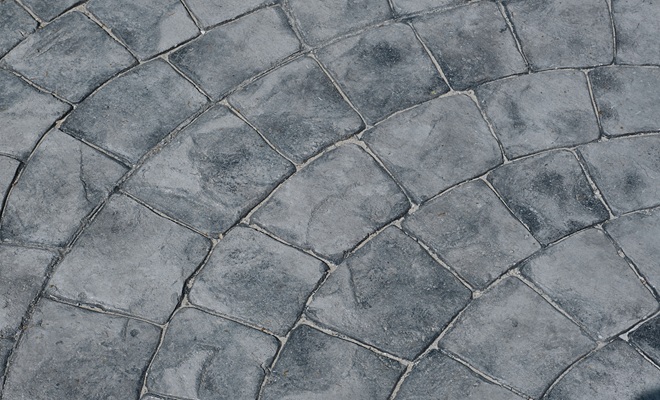
Pros:
- ✔ Lasts for between 25 and 50 years
- ✔ Adds value to your home
Cons:
- ✗ Needs regular maintenance
- ✗ You can’t use the driveway immediately after installation as the concrete needs time to cure, which takes between 3 and 7 days.
Block Paving Driveway
Block paving looks attractive and is easier to repair than most other materials as the blocks are individually laid. The cost of block paving for a 40 m2 driveway is between £1,400 and £5,000.
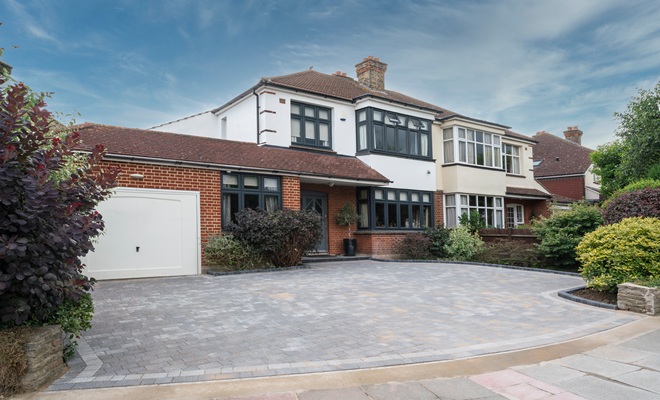
Pros:
- ✔ Choice of colours of designs available
- ✔ Low maintenance
Cons:
- ✗ Labour intensive installation
- ✗ Not the cheapest option
Gravel
If you want your driveway completed quickly, then a gravel driveway could be your best choice. Installation takes between 1 and 2 days. The cost of a 40 m2 gravel driveway is, on average, between £2,280 and £2,800.
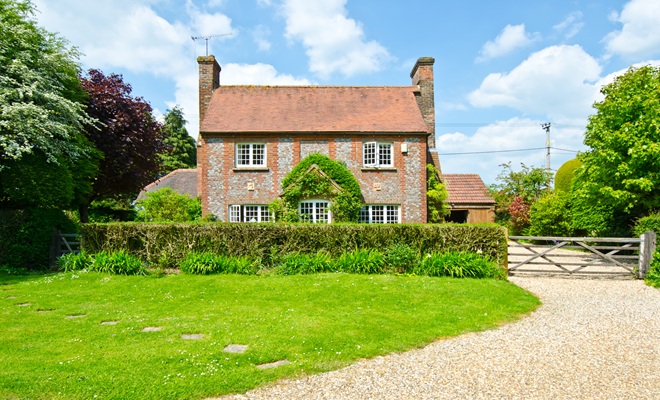
Pros:
- ✔ Reasonably priced
- ✔ Quick to install
Cons:
- ✗ Difficult to clean
- ✗ Gravel doesn’t always stay in one place, which can give the impression of a messy driveway
Tarmac Driveway
Tarmac, like gravel, is an inexpensive option. It repels water well and stands up to cold weather. The cost of a 40m2 tarmac driveway is, on average, between £2,600 and £4,400.
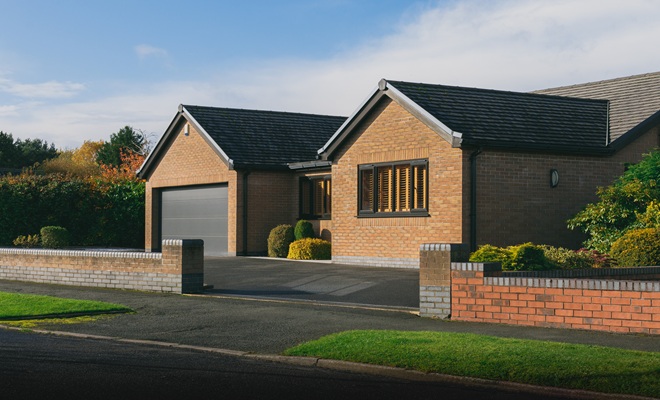
Pros:
- ✔ Adapts well to cold and wet weather
- ✔ Budget-friendly option
Cons:
- ✗ Needs to be sealed to protect the surface
- ✗ Can be damaged by oil, petrol or diesel spills
Resin-bound Driveway
A resin driveway will typically last between 15 and 25 years if it is well-maintained. The resin produces an appealing smooth surface which you can colour. The cost of a 40 m2 resin-bound driveway is between £2,200 and £4,000.
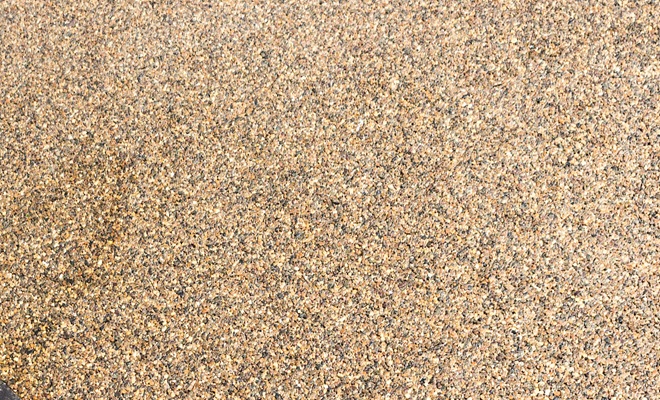
Pros:
- ✔ Hard-wearing
- ✔ Long-Lasting
Cons:
- ✗ The colour may fade in time
- ✗ Resin is a toxic chemical, so it’s not environmentally friendly and may be hazardous to health
DIY vs Professional Driveway Installation
The DIY Route
If you are good at DIY and you have the time and the right tools, then you might think about laying your own driveway. The best materials to use for a DIY project are gravel, block paving or concrete. Tarmac and resin-bound driveways are best left to professionals with the right experience and specialist equipment.
If you DIY your own driveway, you will save on the costs of labour. The amount will depend on the size of your driveway. For example, a mid-sized gravel or blocked paved driveway will save you between £450 and £800 in labour. A concrete driveway will save you between £660 and £1,800. However, you will incur some extra costs if you need to hire machinery, such as a concrete mixer or a plate contractor. A concrete mixer will cost, on average, around £35 for a week’s hire, and a plate contractor can cost around £62 for a week.
The problem with the DIY route is that laying a driveway can be challenging. You might come across problems with drainage or incorrect levelling, which will delay the work, and you could end up with a badly installed driveway that you may end up relaying at some point in the future.

Hiring a Professional
The benefits of hiring a professional to do the job are that they will have the skill, experience and equipment to get the job done within a reasonable timeframe. Another benefit is that if you hire a reliable contractor, the work should be done to a high standard with a guarantee or warranty that you can depend on if there are problems.
Planning Permission and Regulations
Planning permission will be required if you live in a conservation area or a listed building, and if it isn’t in keeping with the rest of the area, then it is likely that permission will be refused.
However, if you don’t live in a conservation area or a listed building, you don’t need planning permission to install a driveway in your front garden. This is as long as you are using a material which allows water to drain through it (permeable) or if you direct rainwater towards a lawn or border so that it drains naturally.
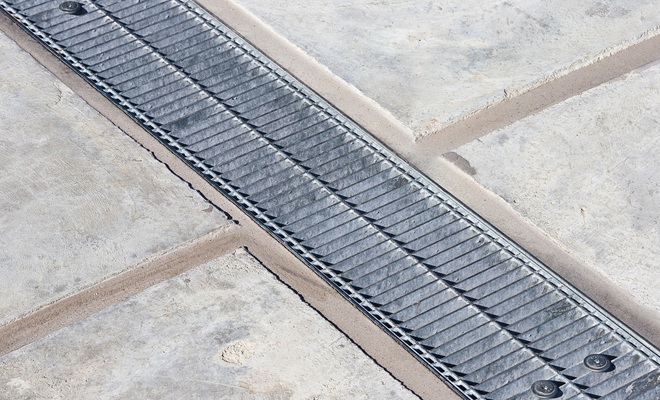
Using permeable material creates a sustainable drainage system (SuDS). When rainwater soaks into the ground, it means that the water isn’t going into our sewers, which is a cause of river pollution.
Another way you can reduce water flowing to sewers is by rainwater harvesting. Put a water butt on your property and allow the rainwater to collect in the butt. You can then use this water for gardening.
However, if you need to drop curbs to facilitate access to your driveway, you will need to make a drop curb application.
If you have a driveway with an impermeable surface, then it will require the installation of extra drainage, and you will need to apply for permission from the planning department.
Cost of Removing or Replacing a Driveway
If you are going to replace an existing driveway, then you might need to have it removed before a new driveway can be installed. The reasons to have an old driveway removed are if you have issues with drainage and you want to upgrade to a better material. If you have cracks or potholes that can’t be repaired, then that’s another reason to have your old driveway taken up and a new driveway installed.
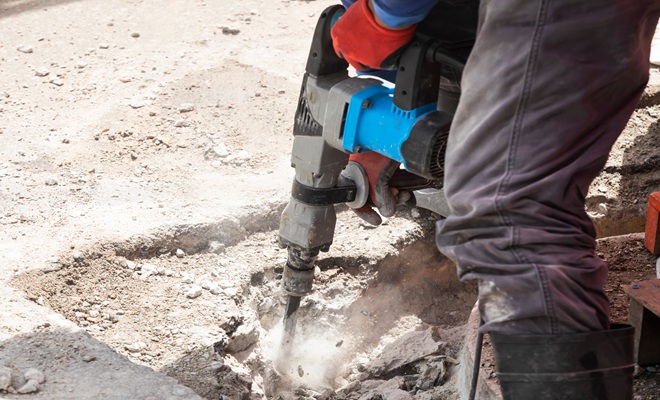
Digging up and removing an old driveway will cost, on average, around £50 per square metre. The costs, therefore, for a driveway of 20m2 will be around £1,000. If your old driveway is 40m2, then you’ll pay around £2,000. A large driveway of 60m2 will cost around £3,000 for removal and disposal.
After the old driveway is removed, you will then have a driveway replacement cost of between £1,100 and £10,250, depending on the material you use and the size of your driveway.
FAQs
Finding and Hiring a Professional
Asking for recommendations from people you know is always a good way to find a reliable contractor. Looking online is also a way to find a driveway installer. You should use trusted online sources like priceyourjob or look at trade websites where registered professionals are listed.
Get at least 3 quotes if you can, and make sure they all outline the same type of job so that you can compare them. Ask that each quote is put in writing, either on paper or by email.
When you speak to each driveway installer, ask them about their experience and whether or not they have a website with photographs and feedback from previous customers.
Check to see if their insurance is up to date. All driveway installers should have public liability insurance and employer liability insurance if they employ staff.
If they tell you they are a member of a trade association, find out which one, and you can have a look at their website. Ask to see their membership card and check the date to make sure their membership hasn’t expired.
Driveway installers might be members of the following trade associations:
- Federation of Master Builders
- Chartered Institute of Builders
- Marshall Accredited Installer, Interlay or Brett approved installer scheme for slab or block paving and gravel driveways
If you want to hire a driveway professional quickly and easily, post your job with us, and we’ll send you quotes from reliable contractors with no obligation.







